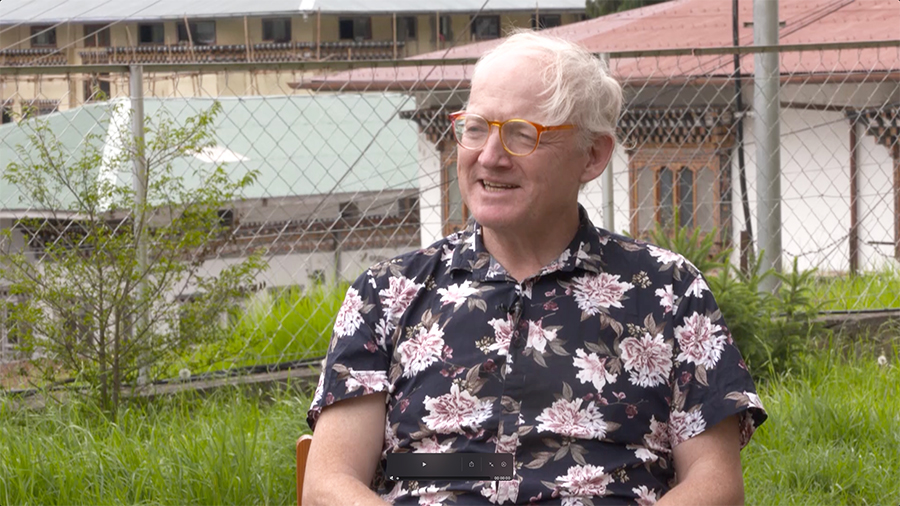
In the ever-evolving landscape of technology, artificial intelligence, AI is a powerful tool that can change how we live and work. Yet, in this era, concerns about its impact loom large, bringing both worries and exciting opportunities that people need to understand. A panel discussion titled “AI in Bhutan: Balancing Traditional and Technological Advancement” was held during the Bhutan Echoes to highlight the pros and cons of AI.
 Professor Toby Walsh, a chief AI scientist at the University of New South Wales in Australia said he believes and advocates that AI should be used to improve lives. He added that for Bhutan, education and healthcare can reap the benefits of AI.
Professor Toby Walsh, a chief AI scientist at the University of New South Wales in Australia said he believes and advocates that AI should be used to improve lives. He added that for Bhutan, education and healthcare can reap the benefits of AI.
Professor Walsh also cited examples of how AI can be used for education with ChatGPT performing several tasks and as an excellent tutor.
Similarly, Dr Tshering Cigay Dorji, the former Chief Executive Officer of Thimphu TechPark talked about the opportunities of AI for a country like Bhutan.
“Unknowingly, we are benefiting a lot from AI. And besides that, AI can be used for education, AI can be used for environmental conservation, and AI can be used for improving efficiency and productivity at work. So, all we need is to leverage the data that we have. And through machine learning, we can implement all these different AI technologies at the workplace.”
He added that although there are a lot of fears revolving around AI, it is time for the country to strike a balance between culture and traditions, and technologies.
“So, the very important thing for Bhutan now is how do we strike a balance between preserving our values and tradition and also adopting the technologies so that we can harness these technologies to solve the different problems that we face. And when it comes to AI because AI is a new technology that is all the buzz today in the world.”
The panel discussion also highlighted the need for regulations to prevent potential negative consequences from AI.
Devika Pradhan
Edited by Tshering Zam








